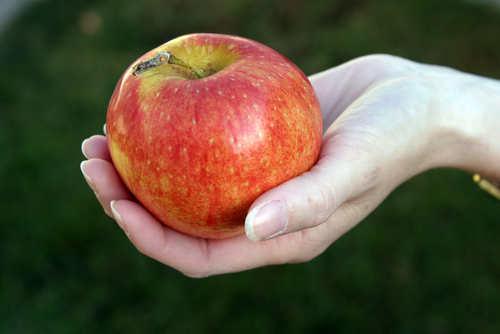
A quick question about your philosophical intuitions. Who’s the more moral person: the one who feels immoral temptations and resists them, or the one who’s never tempted to do wrong in the first place?
Famous philosophers have taken different sides on this. As an article in the Atlantic describes, social scientists are now investigating the question:
One argument, associated with Aristotle, is that a truly moral person will wholeheartedly want to do the right thing, and no part of her will be tempted to act immorally. Another argument, associated with Immanuel Kant, is that an action is truly moral only if it is not something you want to do — otherwise, a person is just acting on her own desires, and although the result might be positive, it should not be considered especially moral.
For their study, the researchers recruited several hundred people, both children and adults, to ask them about a variety of scenarios where a hypothetical person was either tempted to commit some misdeed but chose not to, or freely chose the right without feeling any temptation to do otherwise. A pattern in the responses stood out:
We found a striking developmental difference: Three- to eight-year-old children judged that someone who does the right thing without experiencing immoral desires is morally superior to someone who does the right thing through overcoming conflicting desires — but adults had the opposite intuition. And these judgments showed up across a number of different immoral temptations, including lying, not helping a sibling, and breaking a promise.
Christina Starmans, who wrote the article, suggests explanations for this. One answer is that it takes wisdom to understand what it feels like to have a divided self. Children, who are simpler beings by nature, have both good and bad impulses by turns, but are less likely to have the experience of having conflicting desires that they have to select among. Adults have more experience of this inner struggle, and they know it’s a mark of maturity to have a higher, executive sense of self-control that can adjudicate among the passions.
All that is true enough, but my intuitions go in a different direction. In this case, I side with the children.
If that’s a surprise, it’s because I’m coming at this from an atheist viewpoint. Any out-of-the-closet nonbeliever has met religious proselytizers who claim that God’s law is the only secure basis for morality, and that without a divine policeman keeping them on the straight path, nothing could deter them from carrying out their most depraved whims.
But, as atheists point out in return, this argument is a terrifying glimpse into the character of the theists who make it. What they’re really saying is that they want to loot, burn and kill, that they would if given the chance, and that only the fear of godly punishment is what holds them back at any given moment. I don’t want to stand next to a person like that, just in case they happen to overcome that fear one day.
Psychology backs me up on this. The evidence suggests that willpower is like a muscle; if constantly exerted, it gets fatigued. Therefore, anyone who’s subject to round-the-clock temptation can’t hold out forever. They may stay resolute for a while, but eventually their willpower will weaken and they’ll give in. The brain is all too likely to choose an immediate reward over a distant and uncertain punishment. Therefore, the better person – the person who’s more likely to act morally – is the one who never feels that temptation in the first place.
Obviously, that’s easier said than done. Unlike some religious evangelists, apparently, I’ve never felt the urge to run amok killing and stealing. But all of us have wayward impulses from time to time. How do we resist them when they inevitably arise?
One way to do it is to arrange your life so that temptation isn’t always present, grinning at you. For this, it helps to know yourself well enough to know what desires you’re most vulnerable to, so that you can make it as difficult as possible to indulge yourself. A recovering alcoholic shouldn’t keep booze in the house; binge eaters shouldn’t buy junk food at the supermarket; compulsive spenders should cut up their credit cards, or (as in one story I read) freeze them in a block of ice. Removing the possibility of instant gratification makes a rogue impulse much easier to resist.
You can also get better at resisting temptation through moral self-education. The knowledge of how lucky I am to be alive at all, let alone my enormously privileged position compared to most people who’ve ever lived, is a reminder that’s brought me solace when I’m stressed out or life feels especially hard. Knowing about the hedonic treadmill makes consumerism less appealing and weakens the allure of material wealth and possessions. And a conscious, deliberate attempt to practice empathy – to see the world through eyes different from your own – is a powerful way to counteract feelings of hatred and prejudice that would otherwise lead you to treat others badly.
All things considered, I conclude that a person who knows their weaknesses and arranges their life to steer clear of them, or who’s made temptation less appealing through deliberate character-building, is more trustworthy than a person who’s constantly beset with unethical temptations they have to fight off. Even if they’re successful more often than not, in the long run they can’t help but give in occasionally. What the Kantian argument misses is that free-willed people can control their own desires – albeit imperfectly and to a limited degree – and a person who banishes bad desires from their own makeup is surely more moral than someone who hasn’t accomplished this.